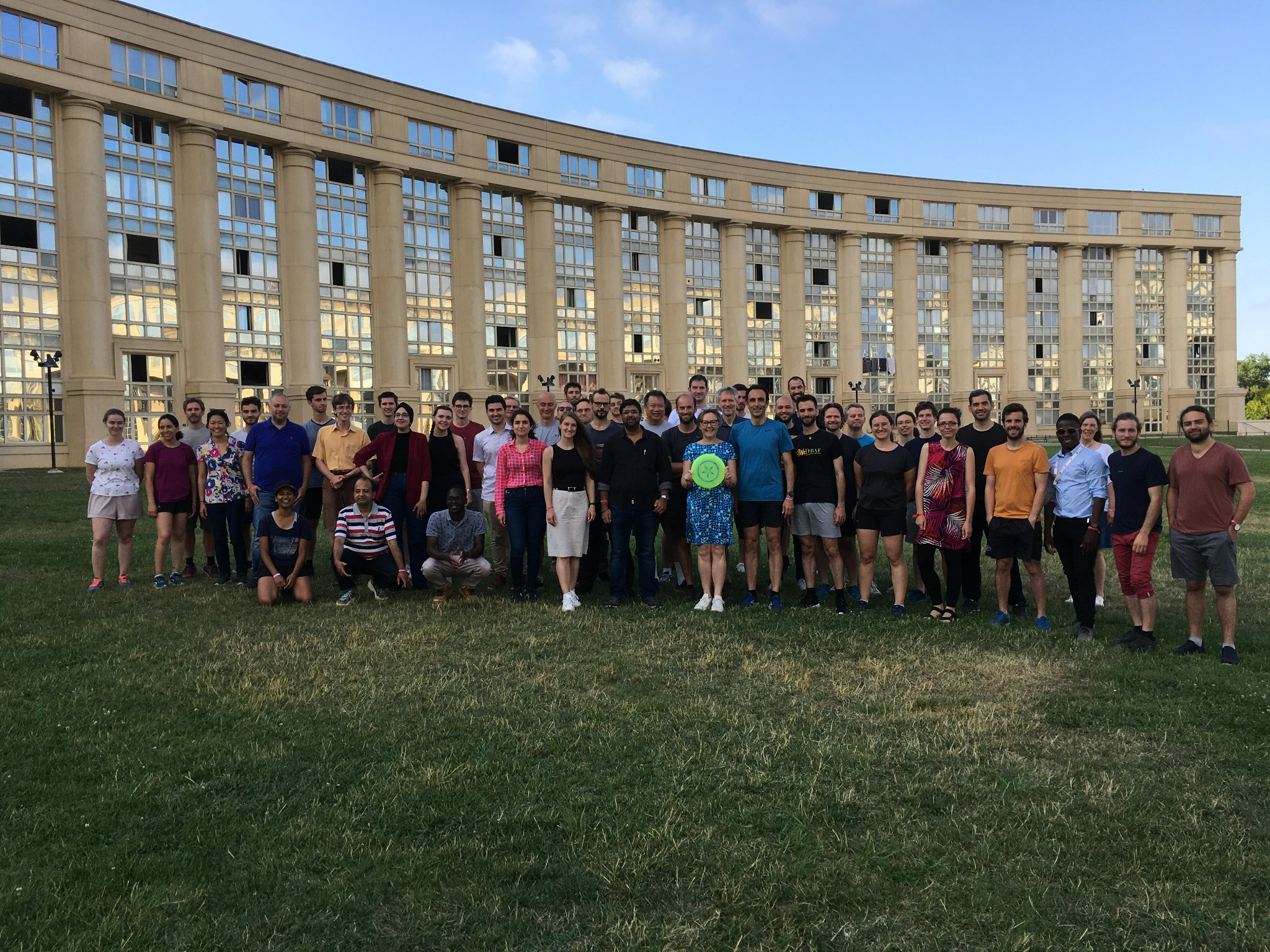IAHS News
The Ultimate IAHS Frisbee Tournaments
The 2021 IAHS ultimate frisbee game: a technical note
In the troubled times of 2021, the IAHS ultimate frisbee game was like no other. For the first time in its history, the game was postponed for one year and was held in 2022. Nonetheless, the game was highly anticipated and therefore it attracted a record number of participants: around 60!
Following what any hydrological modeller should do before applying its model, and because these conditions had never been encountered before, a differential split sample test was applied to the participants. First, the crowd of participants was split into two equal parts. Second, contrasted samples of participants were constituted: on one side the dark-coloured shirt players, on the other side the light-coloured shirt players. This thorough protocol enabled to assess the robustness of ultimate players.
Due to the high number of players and the subsequent high number of necessary operations to process, it was unanimously decided to parallelize the event. Two games were played in parallel, half of the dark-coloured shirt team played against half of the light-coloured shirt team, while the other two halves played against each other. This old-fashioned manner to run the game faster did not satisfy all players. Indeed, some of the youngest, and therefore geekiest, players, decided that using the cloud was a better option. Unfortunately for them, throwing Frisbee disks to clouds only resulted in losing them, although one of them was found back into the nearby Lez River.
The boundaries between the two games were porous and some unintended interactions between the two games were noted. Still, parallel computing, although not being a 100 % perfect method, has a bright future ahead, and outperformed cloud computing. This report being a technical note, we decided to focus on the methodology only and the results will not be detailed here. For more details, the readers are invited to read our next papers.
The 2019 IAHS frisbee game: an ensemble approach
The 2019 IAHS ultimate frisbee game was held at the Montréal Champ-de-Mars green area, in front of the City townhall. The participants decided to constitute two groups, the Ensemble Kalman Filter (EnKF) team and the Particle Filter team, aiming at comparing these two data assimilation approaches that are widely used in hydrology to incorporate real-time data into models.
A dozen of participants were in each team, constituting the members (or particles) of these two ensembles. As the EnKF generally necessitates less members than the Particle filter, the EnKF team started the game with high confidence. Consequently, after the first observation of a Frisbee disk was made on the field, they scored the first point with high accuracy.
Confident with this early victory, all members of the EnKF team decided to stay close together before the next Frisbee observation. On the other side, the Particle filter team adopted a different tactic: applying the well-known principle of natural selection, a.k.a. the sequential importance resampling, its particles performing the less were simply discarded from the team. To keep a similar number of players, its best elements were replicated. While this could have lead to a lack of diversity in the Particle filter, this methodology proved to be efficient for the next Frisbee disk observations. Oppositely, due to a too high proximity, the EnKF team members collided and suffered from a collapse and could not score again.
While the game resulted in a large victory for the Particle Filter team, the EnKF team strongly argued that if multiple spatially-distributed observations of Frisbee disks were made, instead of one at a time, the Particle Filter team would have struggled and they would have easily won the game. That might be further investigated in following games.
View our Facebook page for more about this fun event in Montpellier!

